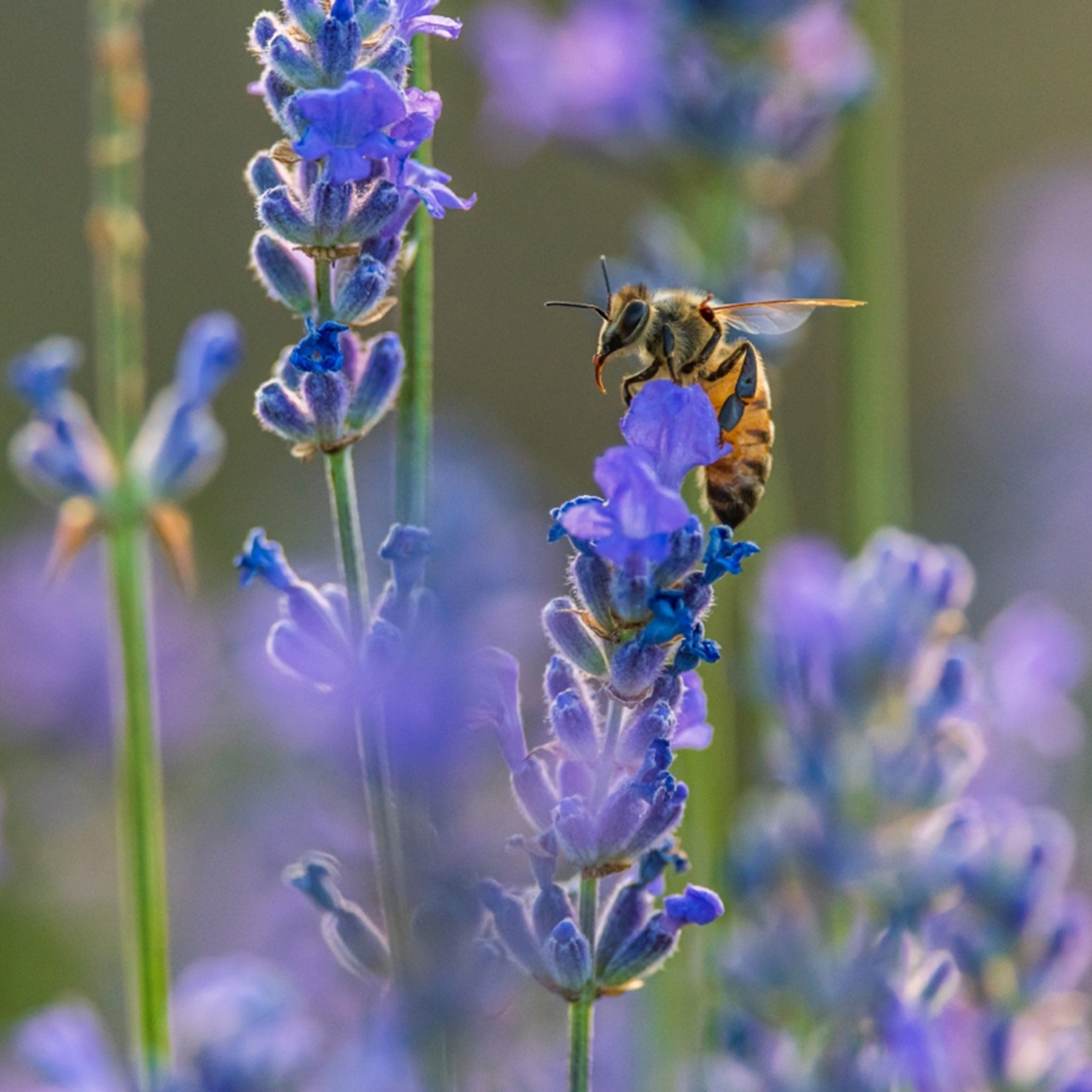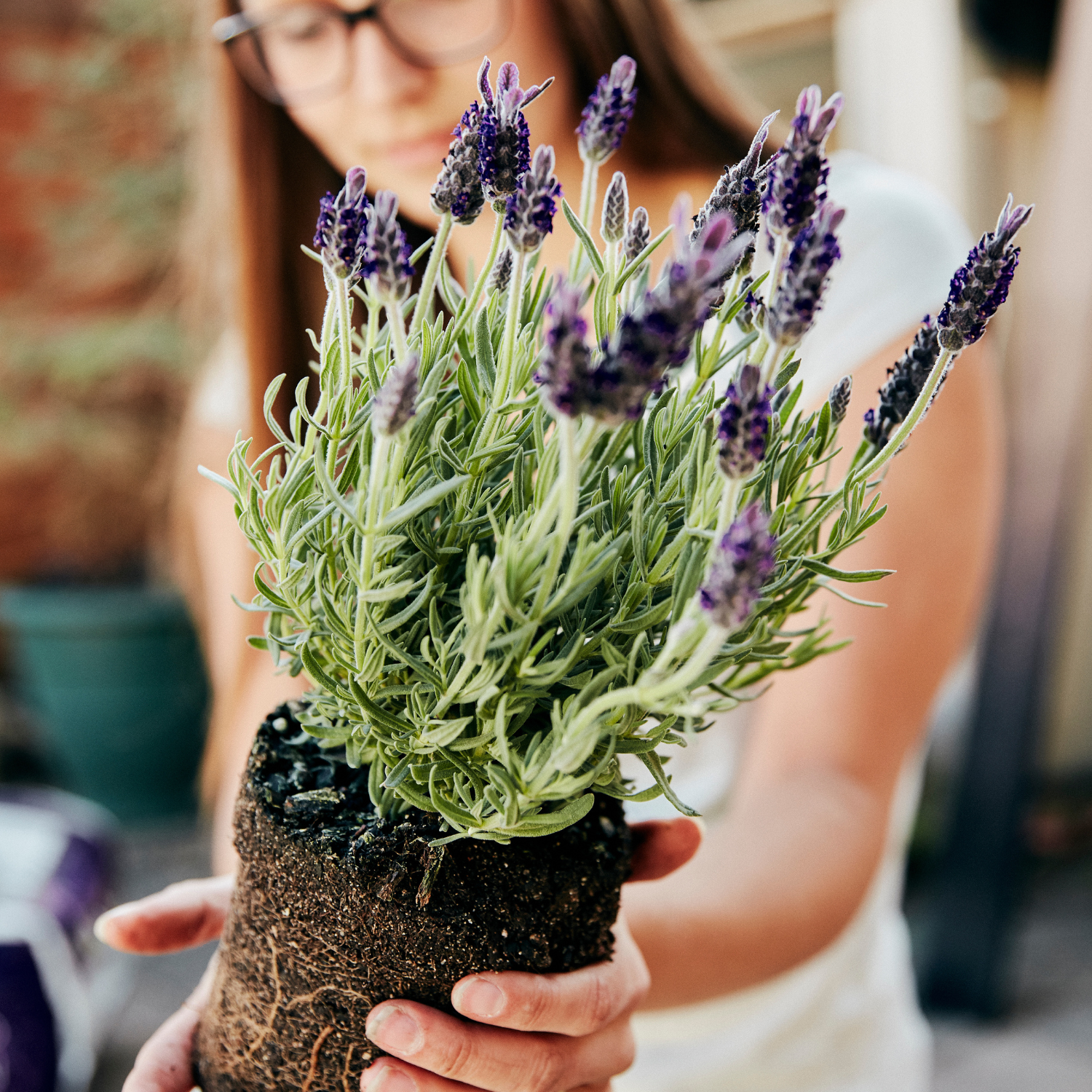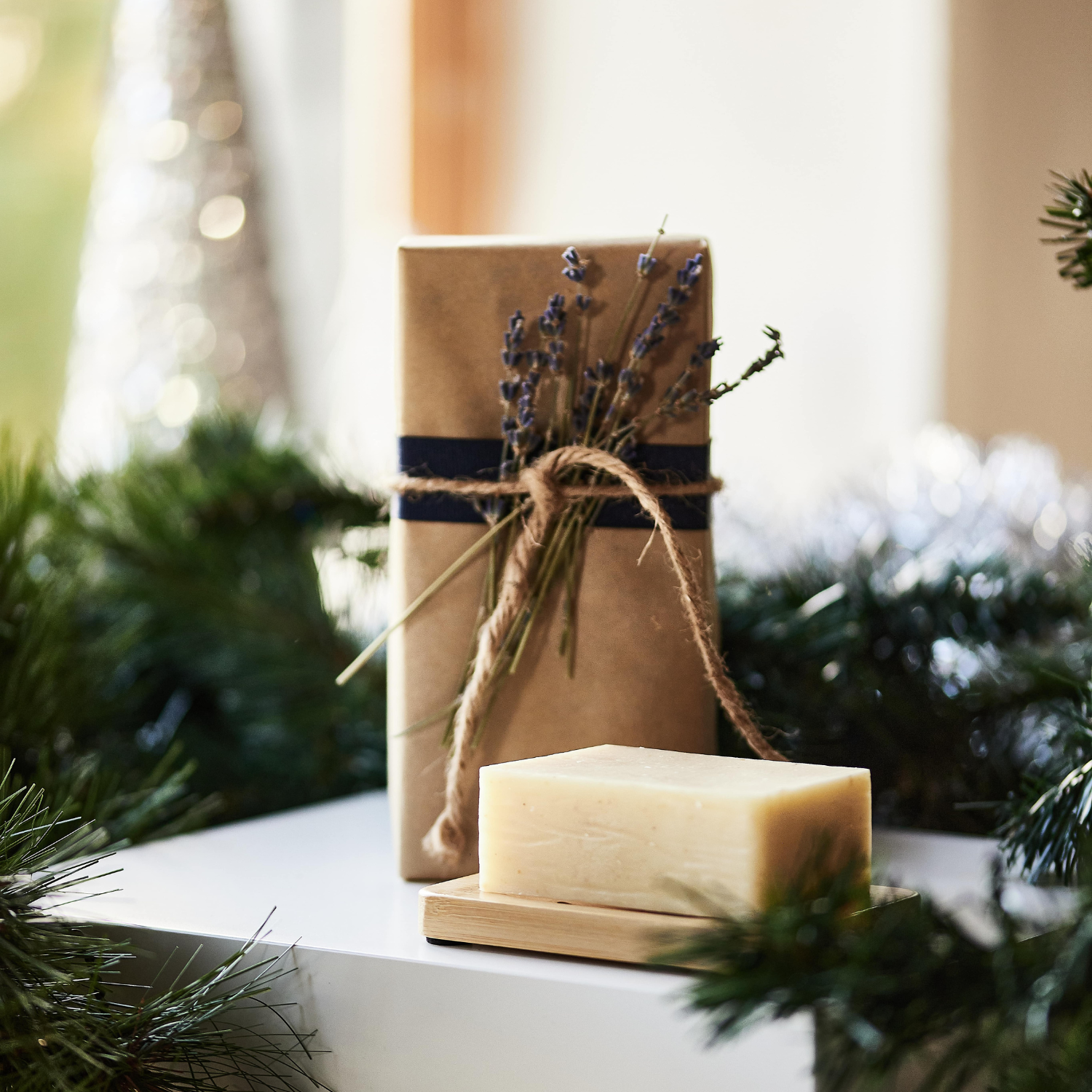Protecting pollinators is important for us at Bleu Lavande and this is why we teamed up with Bee City Canada. Their mission is to raise awareness about protecting bees and other pollinators. They encourage cities, businesses, and people across the country to take part in the action.
Bleu Lavande has taken action in a number of ways. The survival of these irreplaceable animals and insects is important to us! This year, we added an insect hotel right in our lavender fields as well as nesting boxes for swallows and shelters for bats. We also deployed signs at the entrance of our site in Magog to encourage people to take part in No-Mow May.
Every year in May, Bee City encourages people, businesses, and towns to take part in the No-Mow May challenge. The idea is that by not mowing the lawn for the month, pollinators have ready access to food and nesting places. Pollinators such as bees greatly benefit from an unmown lawn. Dandelions are a source of food for them, and long grass can give them a place to shelter. Springtime is a particularly important time of year for pollinators because flowers, their source of food, are only just starting to bloom.
How to Take Action in Your Very Own Garden

The No-Mow May challenge is just one way to help pollinators. There are many other actions we can take to help them survive. For those looking to do more, here’s what Bee City recommends:
- Native plants in your garden – Plants that are native to your ecosystem have evolved alongside the pollinators that belong in that same ecosystem. These plants offer them precious resources like pollen and nectar and also have the advantage of growing on their own without needing a lot of watering (or chemical fertilizers or pesticides). Not sure which plants are a good match for your region? Check out Pollinator Partnership Canada’s ecoregional planting guides and the Find Your Roots native plant selection tool.
- Nesting areas – Most bee species nest underground, in a cluster of plant stems, in abandoned beetle burrows in tree trunks, or similar small spaces. Use these spaces to their advantage! Let nature inspire you and offer pollinators spots like this in your garden. Leaving some parcels of land empty can be useful too.
- Host plants – Many pollinators have developed symbiotic relationships with specific plants and rely on them to plant their eggs. Try including these in your garden.
- Avoid insecticides – Insecticides can harm pollinators. It is also important to carefully read the label when using a new product. Using it properly can make all the difference.
Learn more about how we protect pollinators on our Save the bees page.
Sources :





